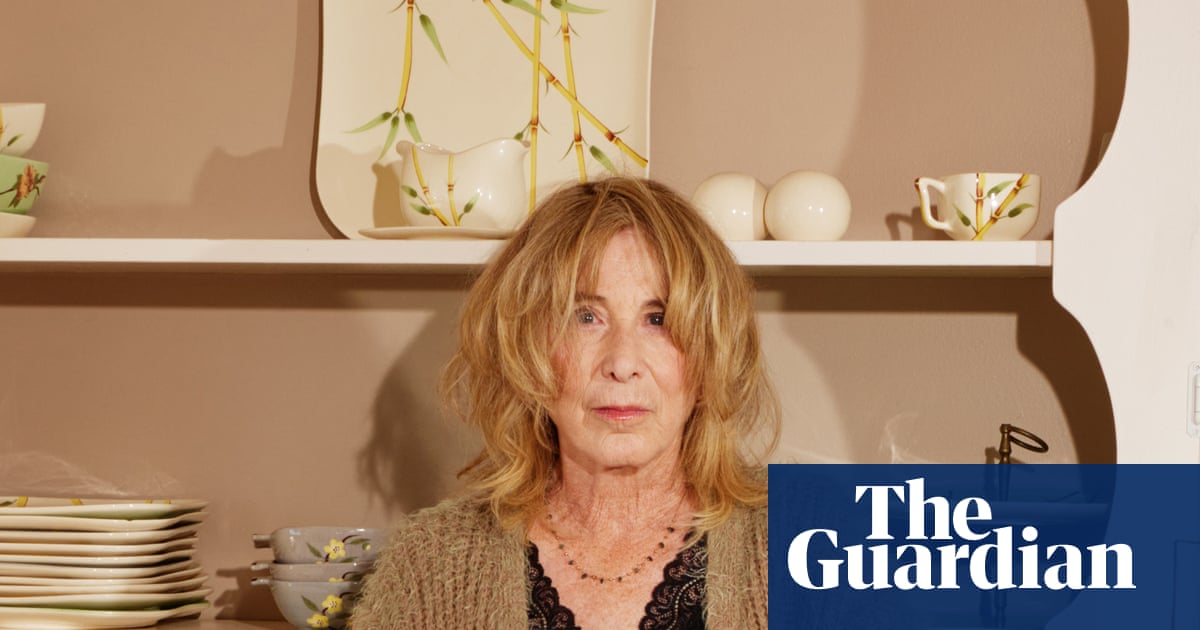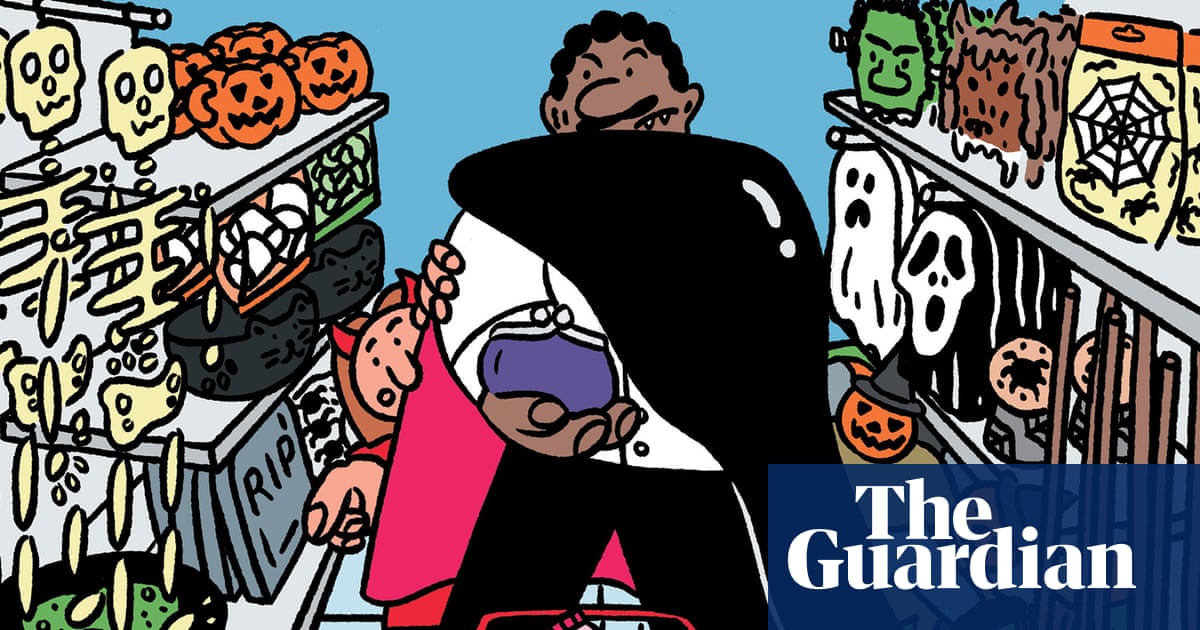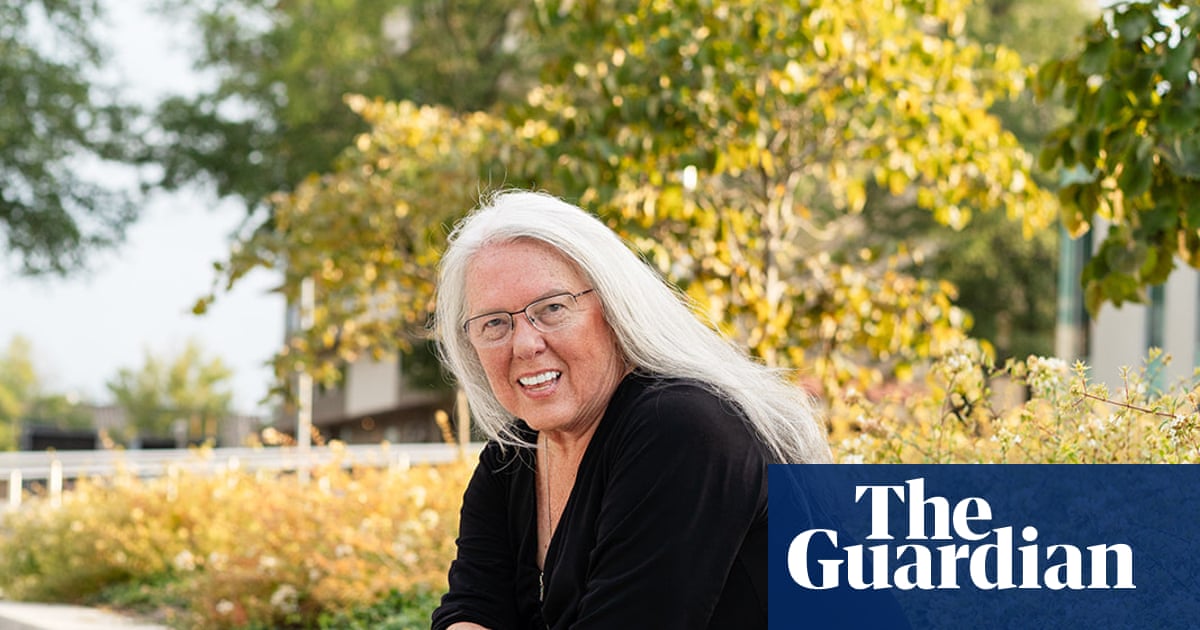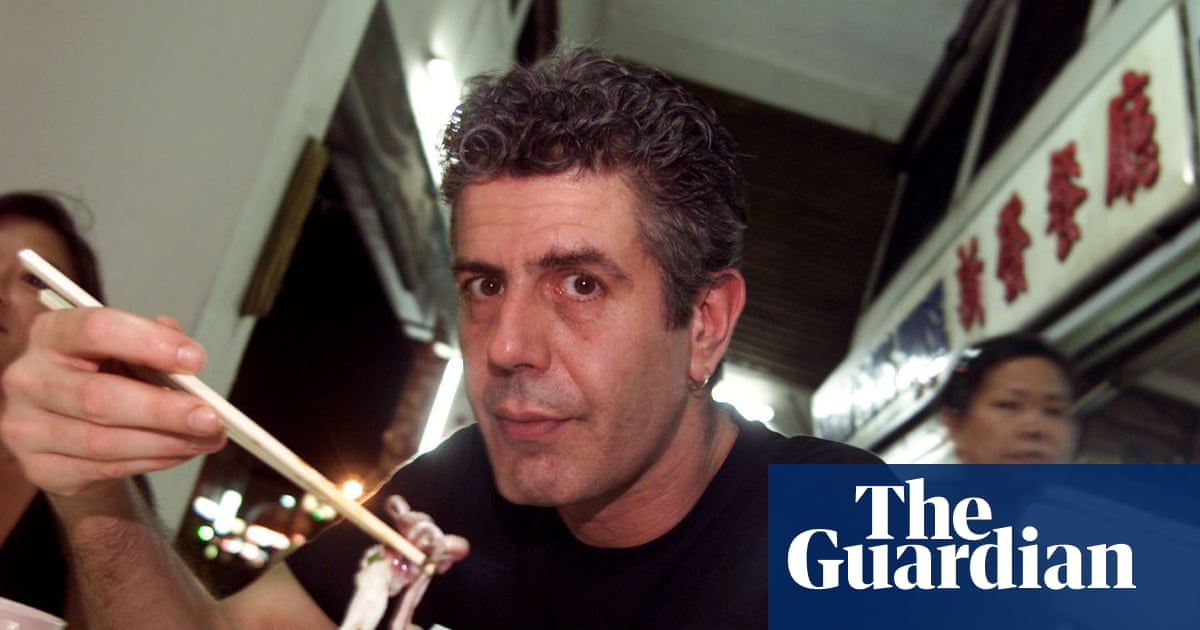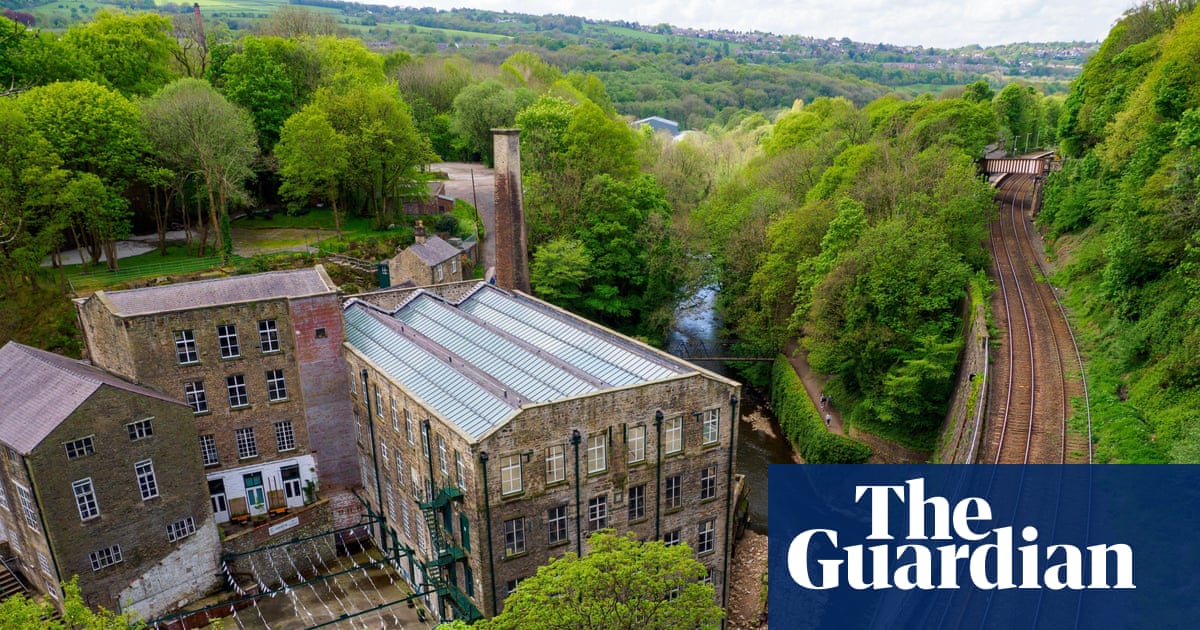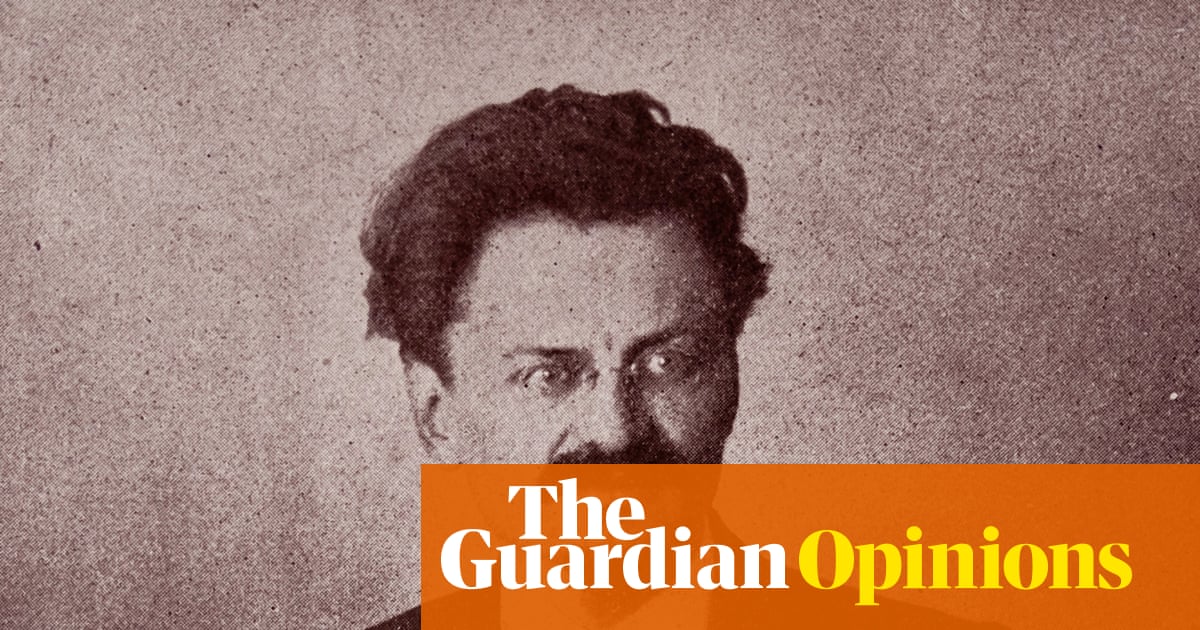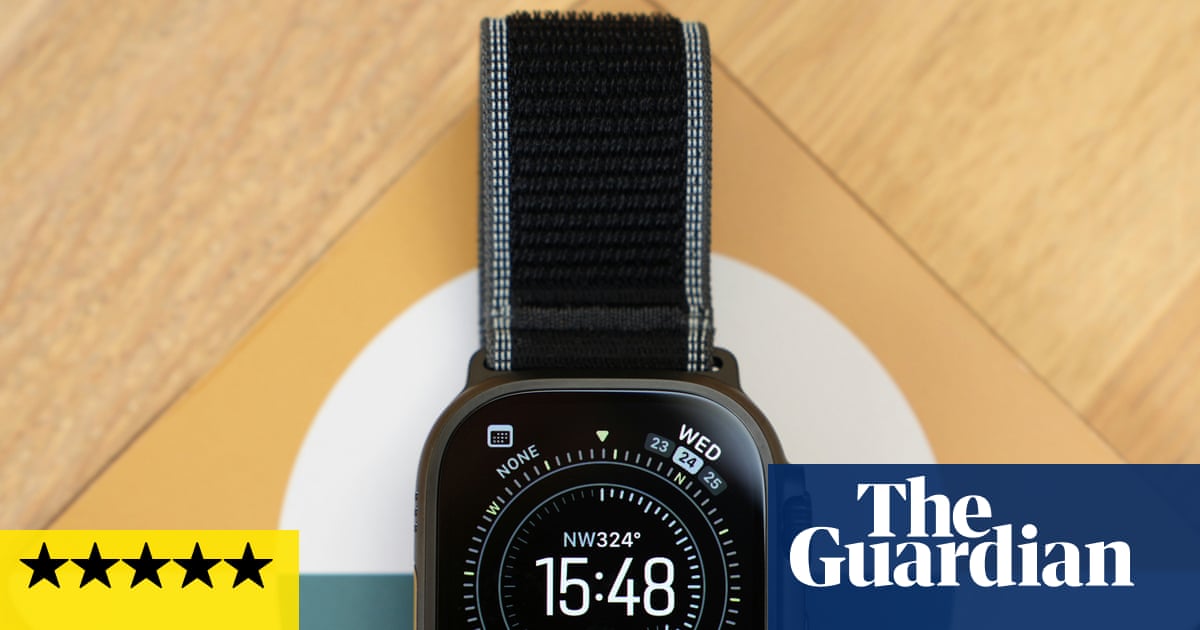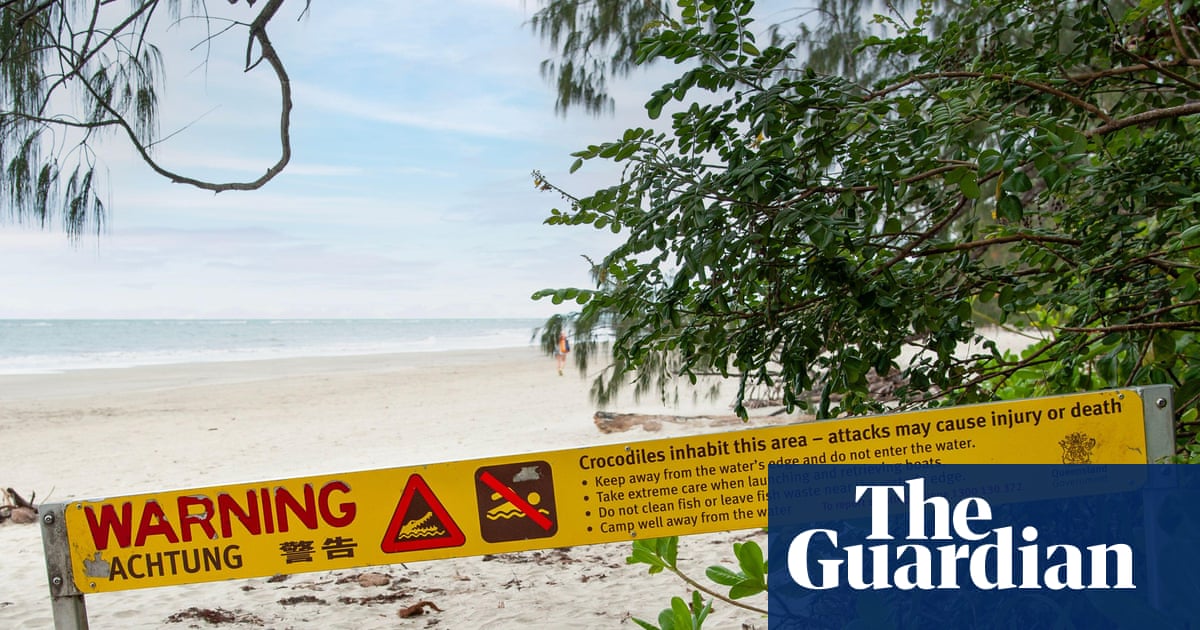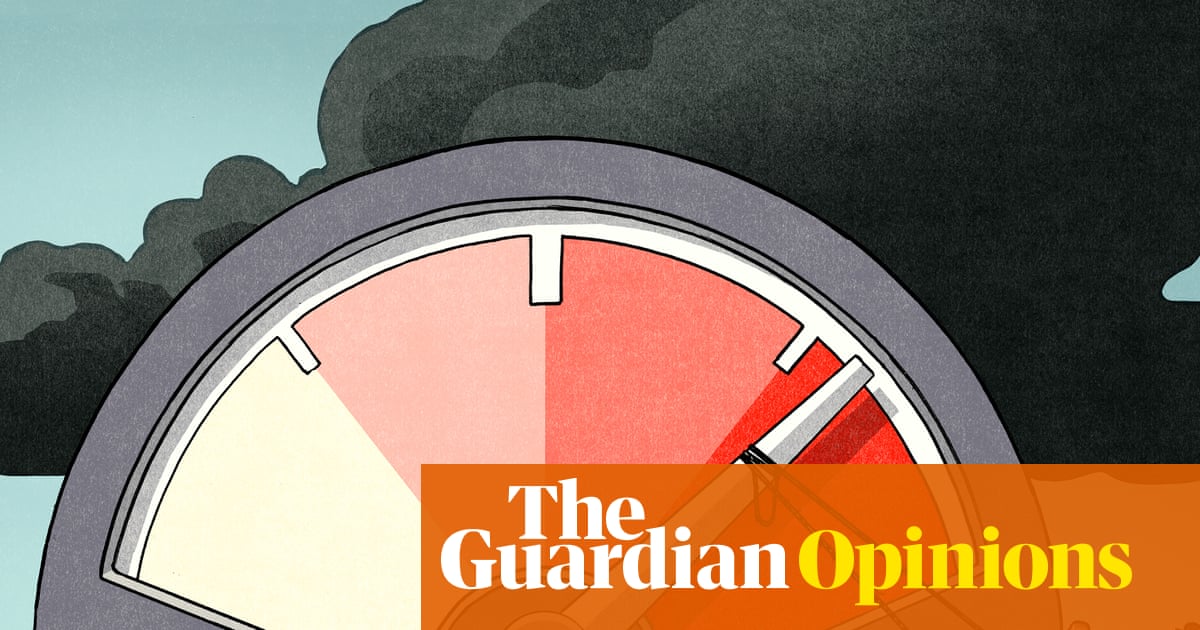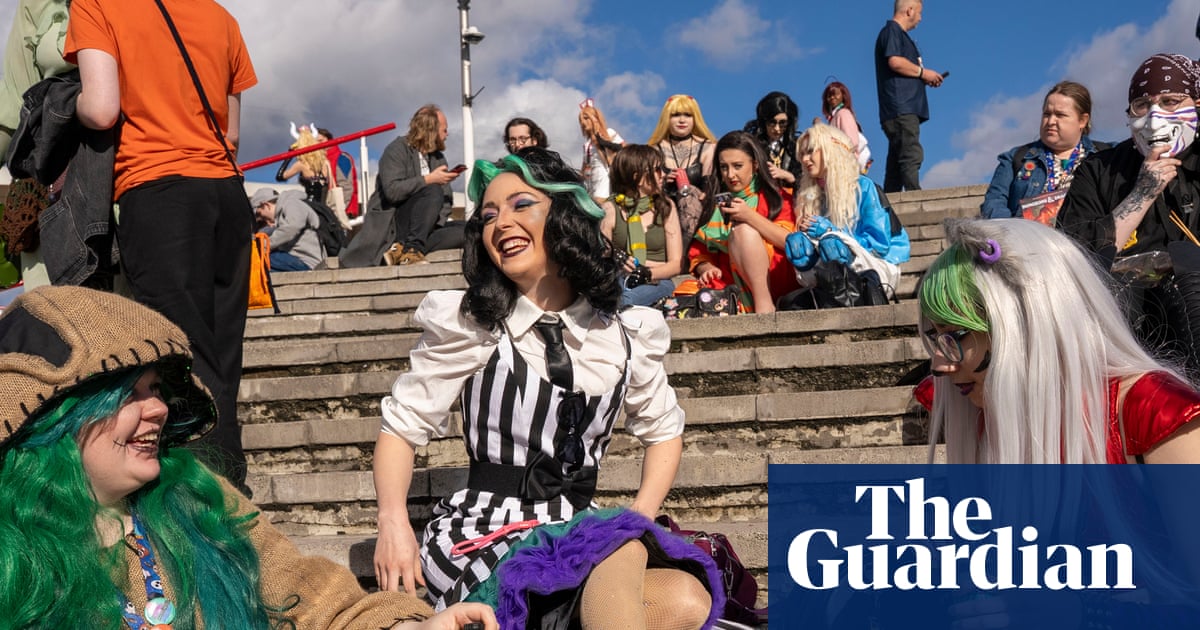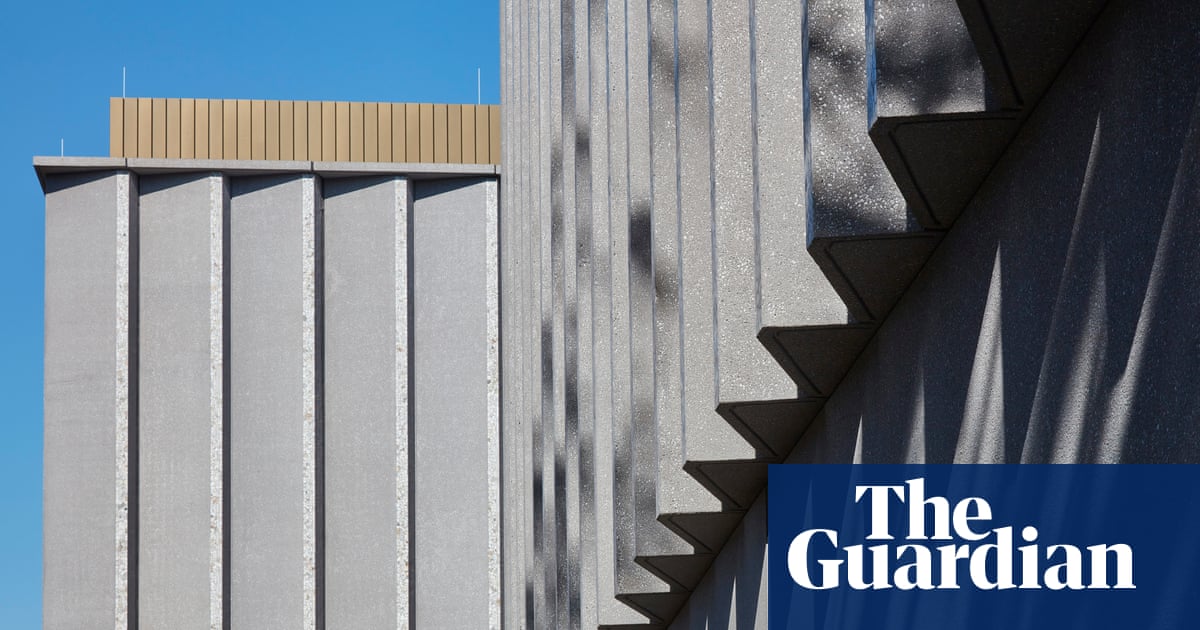Warakurna Superheroes #1, 2017 (On Country: Photography from Australia)
’Country’ is a term embodied by First Peoples in Australia to describe the lands, waterways, seas and cosmos to which they are connected. Placing First Peoples’ practice at the core of this exhibition, On Country brings together Indigenous and non-Indigenous artists who bear witness to the visible and invisible aspects of life here. Les Recontres d’Arles runs from 7 July until 5 October 2025
Photograph: Tony Albert/Sullivan+Strumpf
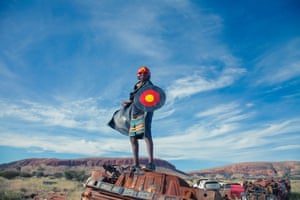
The Wedding, from The Album of Oblivion, 2024 (Ancestral Futures: Brazilian Contemporary)
Ancestral Futures addresses Brazilian society and history by reinterpreting its visual archives and traditions. With fierce irony and radical imagination, these artists dispute and remix official accounts to protest the silencing of minorities and violence against Afro-Brazilian, immigrant, Indigenous and LGBTQ+ communities
Photograph: Mayara Ferrão
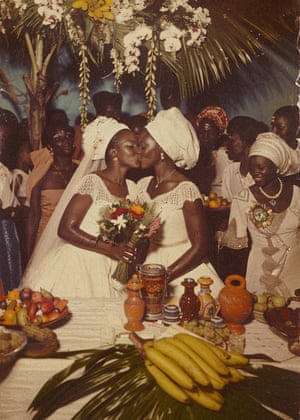
Tajëëw, ja tsa’any [Tajëëw, the snake], 2020 (Discovery Awards: Louis Roederer Foundation, An Assembly of Sceptics)
Tajëëw and Kontoy are the names of the ancestors of the Ayuuk community, whose origins are passed down via oral transmission from one generation to another. In the photos in this project, Octavio Aguilar’s friends play Tajëëw and Kontoy, following visual codes rooted in the Ayuuk imaginary, allowing the revival of a memory diluted by time and by the cultural segregation experienced by indigenous communities throughout Mexico’s history
Photograph: Octavio Aguilar/Parallel Oaxaca
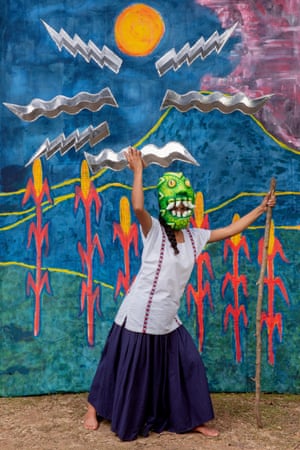
The Lobster War 2025. Déjà-vu, 2025 (Archive Tales)
The alternate history explored in the Lobster War show did in fact take place. It was a conflict between Brazil and France from 1961 to 1963 – a diplomatic and military dispute over fishing zones. This conflict, minor though it may have been, has nonetheless had a marked impact on our world, and the lobster has emerged as a veritable emblem, even a mythology
Photograph: Thomas Bouniol, Célia de Feral, Teva Lan-Yeung,Denis Valery Ndayishimiye, Maria Teresa Neira Barres,Mélina Rard, Joffrey Sebault and Jacinta./Courtesy of the artists
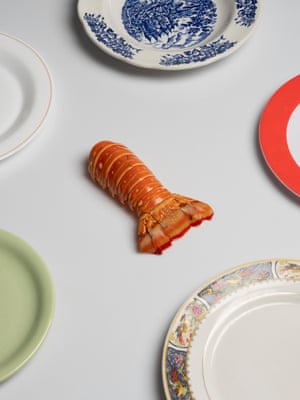
Nancy Playing With a Glass, New York, 1958(The Beat Generation series)
Louis Stettner is the author of a major body of work produced on both sides of the Atlantic – a bridge between American street photography and French humanist work. His lifelong passion for social and political struggles and the history of photography led him to work in many forms: writing, collage, sculpture and painting. Almost 10 years after his death, this exhibition sheds new light on his work, presenting nearly 150 historical and modern photographs printed by Stettner himself
Photograph: Courtesy of the Louis Stettner Estate
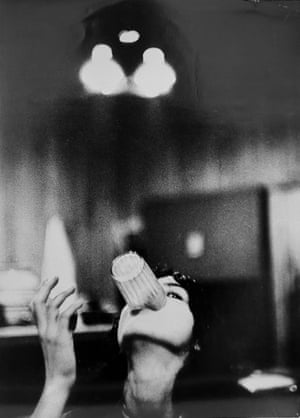
Dancing on ashes (Open Fire). Sculpting the Self – The Rest is Drag series, 2015
Dancing on Ashes (Open Fire) juxtaposes two series of photographs and texts that revolve around the practices of twerking and voguing. Completed about 10 years apart, Twerk Nation and The Rest Is Drag explore dance and party culture as sites of popular, aesthetic and political struggle. Here we see Legendary Edwin Ninja Revlon Xtravaganza DaNewway at the 25th anniversary Latex Ball in New York
Photograph: Lila Neutre
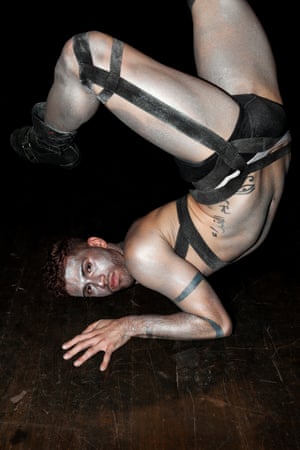
Family Stories: Young Love, 2024 (Stendhal Syndrome)
Stendhal Syndrome (2024) is a slideshow that juxtaposes images Nan Goldin has taken over the last 20 years of classical, Renaissance, and baroque masterpieces in dialogue with portraits of her friends and lovers. The structure of the piece is based on Ovid’s Metamorphosis, in which she casts close friends and lovers as mythological characters including Galatea, Orpheus and Hermaphrodite. It climaxes with a retelling of Stendhal’s famous collapse in the face of overwhelming beauty
Photograph: Nan Goldin/Gagosian
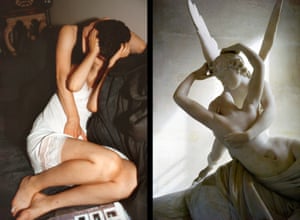
Family Stories: Mornings with You, 2014-2024 (Father series)
Fifteen years since she last saw him, and with no picture to remind her and no address to direct her, Diana Markosian set out to find her father in Armenia. Father is an intimate portrayal that relays the complex journey of a father and daughter trying to rebuild the emotional foundation they once shared, using documentary photographs, archival documents and vernacular images
Photograph: Diana Markosian
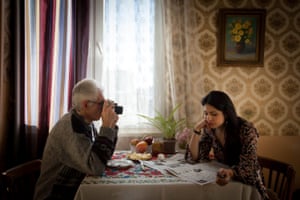
Family Stories: Skin Substitute (Ectoplasm), 2016 (Alma/Mama’s Clothes)
When Keisha Scarville’s mother died in 2015, she turned to her old clothes – remarkable transmitters of memory, with their capacity to store the shape and scent of the wearer – using them as the material and inspiration for her photographs. To conjure her mother’s presence, Scarville drew inspiration from late 19th-century ‘spirit photography’ and the Yoruba tradition of Egungun, a manifestation and honouring of ancestors
Photograph: Keisha Scarville
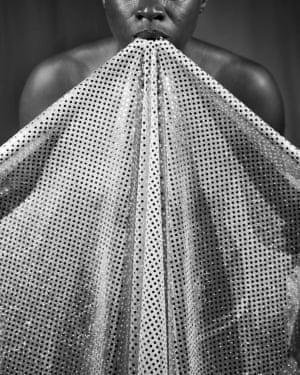
Family Stories: Elizabeth, Paris, Winter 1974 (The Women, the Sisters series)
‘Elizabeth and I are sisters. We are all sisters,’ wrote Erica Lennard in the epigraph to Les Femmes, les Sœurs (1976). The book unfolds as an epistolary exchange between a poem written by Elizabeth and portraits of her and their friends. The deep bond uniting Lennard and her subjects imbues the images with palpable tenderness
Photograph: Erica Lennard/La Galerie Rouge
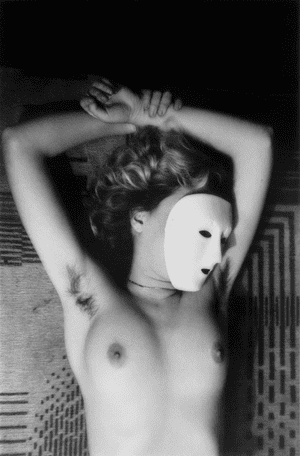
Family Stories: Double Exposures, 2024
Over the course of a year, Carol Newhouse and Carmen Winant engaged in a photographic dialogue. One would shoot a roll of film, wind it up, and send it across the country, where the other would expose it once more – usingthe technique of double exposure to create a layered interplay between their images. Double exposure was a technique used by Newhouse and her comrades to play with the claim of a single, often masculine, art creator. Through this creative collaboration, the artists reclaim feminist photographic strategies
Photograph: Carol Newhouse and Carmen Winant
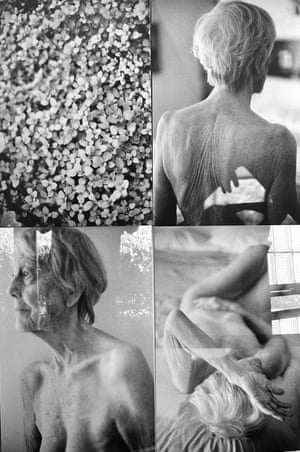
Untitled, France, autochrome plate, 1924 (Archive Tales: In Praise of Anonymous Photography)
Founders of the Lumière des Roses gallery, Marion and Philippe Jacquier specialise in anonymous and amateur photography.As ‘image seekers’, they have worked for 20 years to build a vast collection of nearly 10,000 vernacular photographs covering more than a century of the medium, where family portraits mingle with historical, scientific, erotic and reportage photographs
Photograph: Anonymous/Marion and Philippe Jacquier Collection /Donation by the Fondation Antoine de Galbert to the Musée de Grenoble
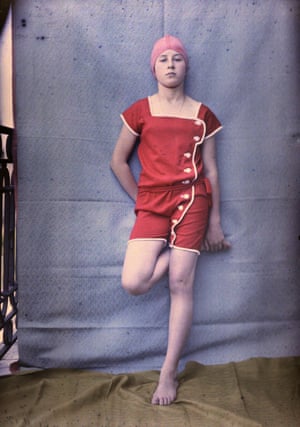
The Skerry Pool, Portrush, Ireland, aristotype print, 1892 (Archive Tales: In Praise of Anonymous Photography)
This exhibition presents a selection of anonymous photographs arranged around themes such as history, intimacy and obsession. It perfectly embodies the genius of amateur photography, and pays tribute to all the amateur photographers who have cast their gaze with no limits
Photograph: Anonymous/Marion and Philippe Jacquier Collection /Donation by the Fondation Antoine de Galbert to the Musée de Grenoble
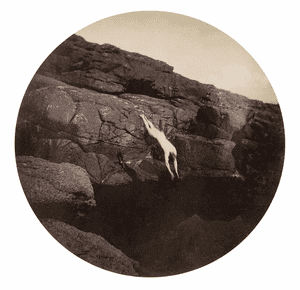
The Standard, 2024 (they stray, they persist, they thunder)
This exhibition presents a hitherto unseen collection of photographic and textual work by Agnès Geoffray. Geoffray’s photographs stage gestures of resistance, defence, uprising, flight or escape. They are fictional portraits of female figures who confront the violence of confinement, or resist it by fleeing
Photograph: Agnès Geoffray/ADAGP,
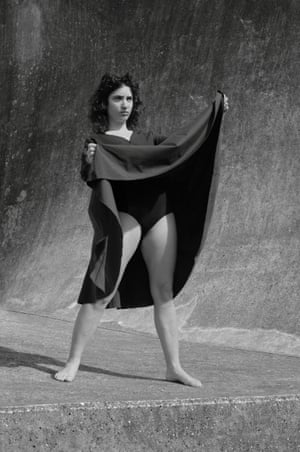
Joseph 83, Conversations series, 2019 (Magma in the Ocean)
These extraterrestrial portraits transmute the testimonies of oppressed bodies into spectral presences through the necessarily political practice of drag. Like the magma that forges new territories, Brandon Gercara’s work transforms colonial traumas into emancipatory artistic material
Photograph: Brandon Gercara
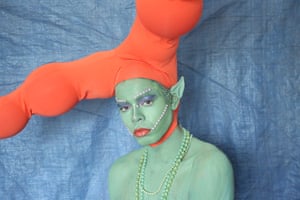
Echoes from a Near Future, 2022
Echoes from a Near Future is a series of photographs staging First Nations women who depart from the European historical gaze. It is part of a series of works portraying the Indigenous woman in all her splendour, eccentricity, pride and charisma. The series brings these female bodies back into our cities, our lives, our families, and our imagination
Photograph: Caroline Monnet
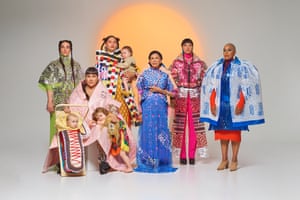
Zoi’s Son, Serra Community, Belo Horizonte, MG, 1989 (Retratistas do Morro)
In the 1960s, in the Brazilian favelas, an artistic movement emerged led by photographers living and working in the very neighbourhoods whose daily life they sought to capture. Conceived in 2015 by artist Guilherme Cunha, Retratistas do Morro is rooted in a collaborative sharing of knowledge, blending photographic research with community engagement
Photograph: Afonso Pimenta
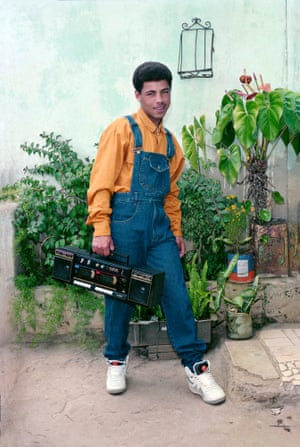
Gundam, dekotora meeting, Fukui, Japan, 2024 (Only You Can Complete Me)
The story goes that the automobile customisation craze hit Japan in the 1970s under the influence of postwar American culture. Japanese dekotora trucks blend traditional forms such as updated ukiyo-e prints, with popular influences including the robot armour from the 1980s science fiction series Gundam. In the 1990s, dekotora were considered too garish and were banned from city centres. In response, their owners withdrew to the suburbs, taking over parking lots, gas stations and industrial areas
Photograph: Louise Mutrel
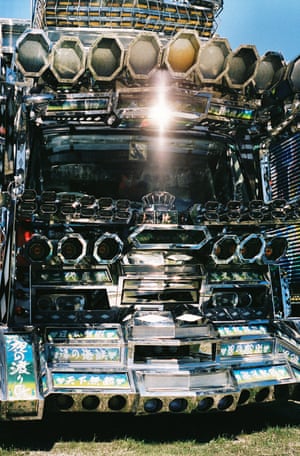

 3 months ago
43
3 months ago
43

